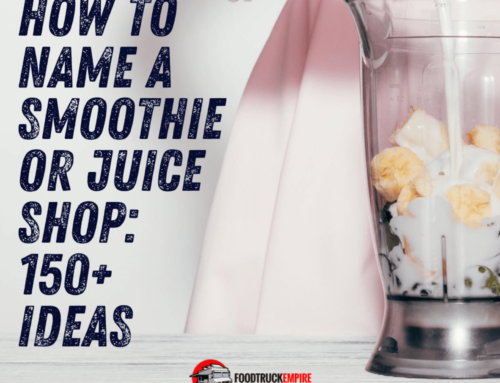Want to open a neighborhood liquor store? This how-to guide gives proven business plan templates you can download and update for your future business in addition to providing tips so you have the best possible chance of success. Ready to get into the real-deal business planning for a liquor shop? Let’s get started.
In this guide, we’ll help you draft an independent liquor store business plan and provide sample templates so you can participate in the $59+ billion industry in the United States. Here’s an outline of the guide so you can jump to the section that interests you the most.
Introduction

Liquor store in Las Vegas.
Introductions are not written for formality’s sake. They’re there to inform the reader and give a bird’s eye view of what your liquor store business is so they’ll know what to expect when they continue to read your business plan.
Everyone understands the basics of a liquor business so you don’t need to go deep into the basics of this. But you should provide context into what makes your retail location different from everyone else locally. Will you specialize in wines? craft beers? Do you offer in-store tastings? Will you have a drive-thru window?
Here’s an example:
Bottoms Up! is a 3,000 sq. foot liquor store located in Long Island. Married couple Lisa and Sam are the owners of this small business that carries a line of alcoholic and non-alcoholic beverages that’s open from Mondays to Saturdays.
Bottoms Up! will feature the largest selection of local craft beer selections within a 50 mile radius of our store. We will be a meeting ground for craft beer lovers with in-store tastings and educational events. We will also provide delivery of craft beer within 15 minutes of our retail store free of charge to consumers with a $50 minimum purchase. We will also embrace technology, including online ordering to make our store the obvious choice for customers.
With this brief introduction, you can already pinpoint major details such as the name of the business, the location, the type of ownership, the proposed store schedule, and the inventory they’ll be carrying. This is the first step in casting your vision for the retail or online store.
Executive Summary
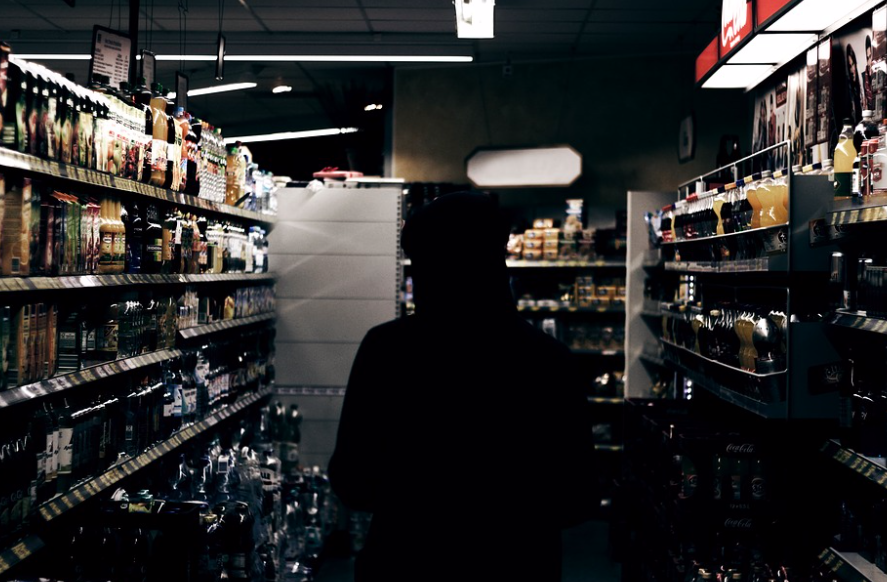
Inside a liquor store.
We know just how exciting it is to dive into the technicalities of your liquor store business and explain the product line and concept at once. But let’s ease it all in first by starting with an executive summary.
This section of the business plan will include a brief introduction about your liquor store, a short company description to discuss the background of your business, the services you offer, and the target customers you’ll be catering to.
An outside party like an investor or partner should be able to understand the nuts and bolts of the business after reading the executive summary and have some conclusions or recommendations based on the research found inside the document.
Buttom’s Up is a liquor store serving a wide selection of wines, hard liquors, and tequilas, but our specialty is craft beer. Craft beer is a rapidly growing part of the beer market now making up 25% of total beer sales according to industry reports. Craft beer drinkers are typically a higher income demographic than typical beer customers.
Our goal is to create a community hub for this growing demographic of drinkers and provide a higher-level of service other retailers aren’t able to offer. Here’s what makes us different:
- We offer free delivery within 15 miles of our retail store on orders over $50. This option will add a level of convenience that traditional liquor stores don’t offer. We will provide deliveries on Fridays and Tuesdays only to make the logistics simpler and cut cost.
- We will offer in-store tastings and invite representatives into our store from local breweries to provide free educational opportunities.
- We have an app that will allow customers to order product online 24/7. These orders can be picked up at our location or delivered on Tuesday or Friday.
Company Description
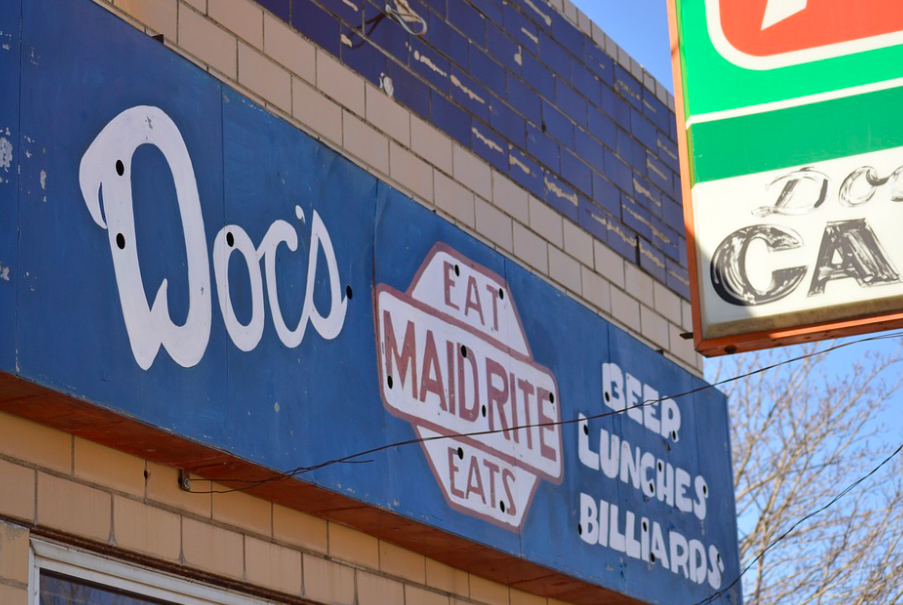
The local beer store.
A company description is simply a little background on the operations behind your new liquor store business. Let’s take Bottoms Up! for example. You already know that a married couple owns the store. You can then provide why they decided to put up such a business.
It may be their experience from being bartenders when they were young or their love for wines. You can also describe their roles such as who will be doing the managing and who will be in charge of purchasing supplies. Again, you don’t need to get too deep into this. Just a brief description will do. This should not exceed more than one page in length.
Related Reading: 148 Brilliant Liquor Store Name Ideas You Can Use
Mission Statement
To strive for success, have your business focus on a mission statement that you can rally around. This mission statement should be shared regularly with guests and future employees alike. This is not something to write down in a business plan and forget about. The mission statement should guide all major decisions for the business.
Here’s a mission statement example for Bottoms Up!:
Our mission is to provide to become a gathering place for craft beer lovers to connect and discover new beverages. We also want to support the local brewing community by helping others discover the local beer options that are available and support the local economy. Our mission is to Bottoms Up! also aims to provide avenues for their customers to buy online so they can enjoy our products with the click of a button.
With this mission statement, you can already tell that Bottoms Up! aims who they plan to support and how they’ll make sure their store is always online so that their customers can order with just one click away.
In writing your mission statement, make sure it’s achievable and can be practiced throughout your operations. You will build the operation plan around your mission statement.
Services

Tasting events can be an effective way to bring in new customers to your shop.
Give a brief account of the services you’ll be providing in your liquor store business. Here are a few you can include:
- Free delivery within a certain distance
- Online payments
- Mobile bar (for events)
- Cocktail classes
- Taste testing
We know how excited you are to get into this one by one but save it for the Product Line and Services section later. For now, keeping your readers informed of the services you’re offering is enough.
Customer Focus
Knowing which customers you’ll be catering to will help form your brand better. This is also where you can get targeted advertising ideas. As you know, Bottom’s Up isn’t trying to market to everyone in their town. They’ve identified the craft beer drinker as their ideal customer. This makes marketing much simpler.
List your customer focus down just like you did in the services section above and save all the detailed explanation for later on in the Target Market section.
Company Description
Writing down the concept for your liquor store business is one of the fun parts of the business plan. All the ideas you’ve had stuck in your head can now be organized into a formal plan. We encourage you to get in as many details as you can.
Many will agree that when you write down the company concept, you’ll come to realize what works and what doesn’t so you can improve your business further.
Market Analysis

Conduct research on the demographics and income of your market.
Analyzing the liquor store businesses around you is going to give you an edge over all your competitors. It’s like going into battle. You have to know what to expect and who your competition is otherwise you’ll start out unprepared and end up losing more than what you expected.
In our market analysis section, take the time out to explore the industry, your competition, and expound on the target market for your business to become successful.
One simple step you should take in your market analysis is to visit other liquor store competitors in your area. When you visit these stores, make a list of what you like and don’t like about their business.
We also recommend spending time outside of these retail locations to track how many customers are coming in and out of the establishment. What do their customers look like? Does this seem like a profitable concept? Taking the time to observe and take notes on other businesses is one of the best ways you can get a hold on what’s working in a market. It doesn’t cost you anything to complete this step either aside from time.
Management Structure
Management structures serve as a guideline for you as the owner and for your entire personnel. It’s important to set clear roles and boundaries so that no task overlaps with the other and no redundancies happen. It’s also to avoid conflicts in the workplace.
Here is a proposed management team for you to consider hiring:
- Store Manager
- Sales and Marketing Staff
- Inventory Team
- Delivery Team
The number of people you hire depends on how big your liquor store is going to be. If you’re just going to be a small store then there’s no need to hire so many people so you don’t spend too much on the payroll. Many first time liquor store owners start out with only one or two part-time employees to keep costs low.
Target Market
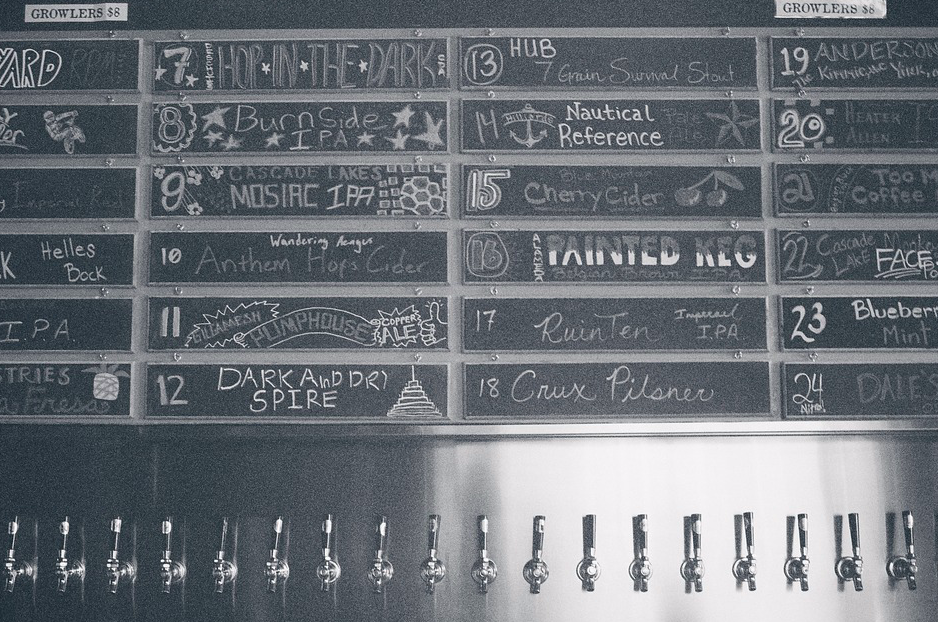
What does your dream customer want?
Knowing which customers you’re targeting for your business makes it easier for you to form your brand. Wine lovers differ from cocktail drinkers. Likewise, there is a different crowd for artisanal beer lovers and just regular beer drinkers. Knowing your target market helps you conceptualize better and list down the products you’re going to sell.
Industry Analysis
Though we’ve pointed out earlier that liquor is enjoyed on every occasion, you’d still need to do an industry analysis on whether or not it’s feasible in the location you’re going to set it up.
You might just find the market oversaturated in your area and it would be advisable to put up your business elsewhere. Or, you might just find your proposed area to be the perfect location. Either way, to know these things, conducting an industry analysis is always helpful.
Doing this type of research will be time consuming, but it’s 100% worth it. The last thing you want to do is open a more high-end bottle shop in a low-income neighborhood. This analysis can help you avoid making the wrong decision.
Competitive Analysis
As a sole liquor store, you will have competition over a lot of other shops, even the ones that don’t even sell liquor as a main item. Treat the grocery stores with their small wine section as a competitor.
Do the same for convenience or grocery stores that have a bit of overlap with your business. List down their strengths and their weaknesses and write down yours as well so you know what you already have and what you’re lacking so you can fill in those spaces.
Product Line and Services
In this section, you can finally write down all the beverages you wish to sell in your liquor store. Include the prices so you can get a gist of how much you’ll be spending to order in supplies. Remember that wholesalers get a discounted price than just stuff you buy in retail.
You can also include more than just drinks. You can include wine glasses, shot glasses, margarita glasses. You can also add different accessories such as wine aerators or corkscrews.
Audio Lesson: How I Started a Craft Brewery for $50,000 and How You Can Do the Same
As for services, do you wish to provide cocktail classes once a month? This could help reel in a loyal list of customers who constantly check out your products. Are you up for a mobile bar? This could be a gig you can do during events such as weddings.
What should be clear in this section is that by the end of writing all of this down, you know what your product line is and whether or not you can find a reliable supplier for all of these. This part of the business plan will be especially important if you’re seeking money from investors or a bank. The anticipated cost / profit from each sale is something every lender will need to understand.
Sales and Marketing
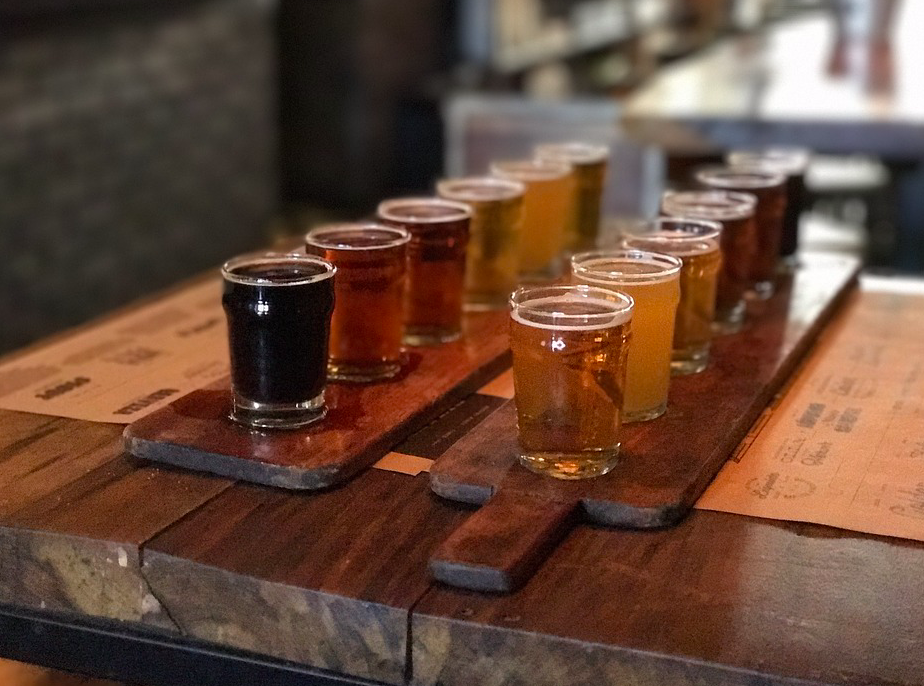
Craft beer consumption has become a global phenomenon.
One big question to ask yourself is how are you going to market your liquor store? Will you be putting an ad out on the local newspaper or place a nice jingle on the radio for the listeners? Whatever your strategy may be, write your plans down here.
You may also like to consider marketing your liquor store using the following platforms:
- Social Media
- Joint venture events with local breweries or wineries
- Newspaper
- Flyers
- Radio Stations
- Tie-ups with bars
- Monthly giveaways
- Partnerships with catering services
- Special drinks classes
With these strategies, your business is sure to get a nice growing niche of loyal customers in your area.
Financial Plan
Having a financial plan on the ready helps you figure out how much capital you need to put up your business, the expenses you’re going to make, and how much do you need to make on a daily basis to achieve break-even. Yes, it’s going to get a little technical. But this is what operating a business is all about.
But know that we’re only looking out for you by saying that this is why it’s important to do this plan before starting on your operations so you know what to expect.
Funding Request
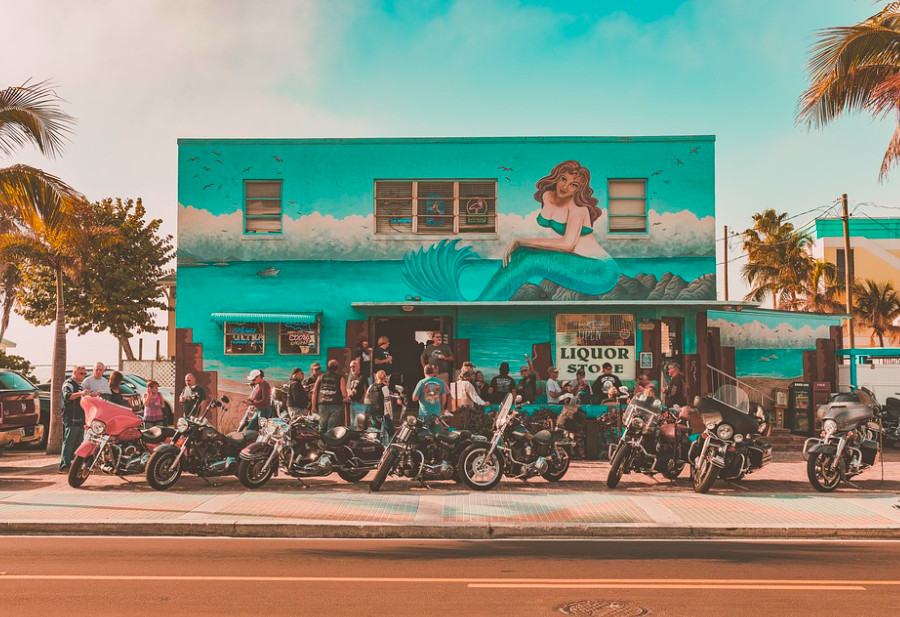
Outside a biker bar and liquor shop.
Some people start a business by tapping into savings. Others take out loans from the bank while some invite investors to help them start up their small business. Crowdfunding is another option used by many new food and beverage founders. In this section of the business plan, write down how and where you’re going to get the money to fund your liquor store.
One reason why you’re writing down this business plan is for this very purpose. For instance, when you loan from banks, they might ask you what your strategies are in putting up a liquor store. This is when you present to them the business plan you’re writing. It is to help convince them that the business you’re going to start is profitable and deserves to see the light of day.
Attention Founders: Join Our Community of 40,000+ Food and Beverage Entrepreneurs and Get our Free Business Plan Canvas
It’s also the same thing with investors. This business plan is going to be read by people who will help you see your liquor store come to fruition so make it as easy to understand as possible with all the necessary details jotted down.
Financial projections
You’ll want to know whether your liquor store I going to be profitable or not. In this section, list down all the major expenses such as:
- Rental space
- Construction materials
- Refrigerated cabinet displays
- Wine chillers and displays
- Point-of-Sale system
- Cash registers
- Inventory
- Shelfs
- Insurance
- Taxes
- Electricity
- Water
- Off-sale liquor licenses (these can be very expensive depending on where you plan to open)
- Business licenses
- Vans or trucks for delivery
Don’t forget the proposed monthly payroll for your staff and the electricity and water bills. With all these factors, you can compute your price range for your products and services and the targeted sales for the day to reach break-even.
Operational Plan
To make sure that your plans are going to happen, write down a schedule of the tentative dates of when you plan to execute all this.
Here is an example:
Date Plan[Insert Date Here] – Process all business documents and permits for your liquor store.[Insert Date Here] – Start construction.[Insert Date Here] – Start hiring and training of staff as well as marketing the business.[Insert Date Here] – Start operations for the liquor store.[Insert Date Here] – Reach break-even.
It does not have to be a detailed operational plan but it does help guide you on the steps you need to take to get things going.
Appendix
Don’t forget the appendix! This section will hold all the permits, copy of the liquor license, business documents, designs of your store, and all other documents you acquired in the process of putting up your liquor store business.
Download Liquor Store Business Plan Sample Template
Bonus Tips
- The more your business engages with the customers, the good will you’ll build. Those cocktail classes you hosted? Customers will remember where they learned these tips and spread the word about the services you’re offering. It’s all about interacting with them so make sure to include that in your marketing strategy.
- Get educated on the different types of drinks. Don’t just put up a liquor store business without understanding the types of drink that are growing in popularity. For example, hard seltzers is an area of growth right now. Listen to feedback from customers on the types of alcoholic beverages they prefer over time.
Liquor stores will continue providing an important service to local communities. When consumed responsibly, they make events more relaxing, fun, and act as a social lubricant. With your careful and detailed planning on this business, your liquor shop can be a profitable business longterm.
If you’re serious about opening a liquor store, be sure to join our community of beverage entrepreneurs. When you sign up, you’ll get access to our weekly case studies that include revenue numbers from different businesses.




